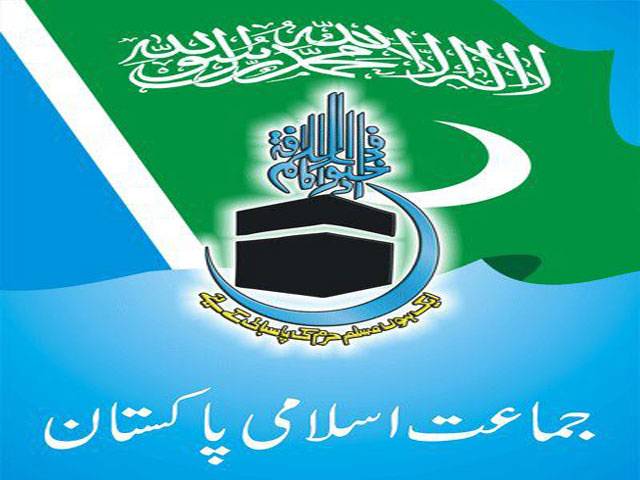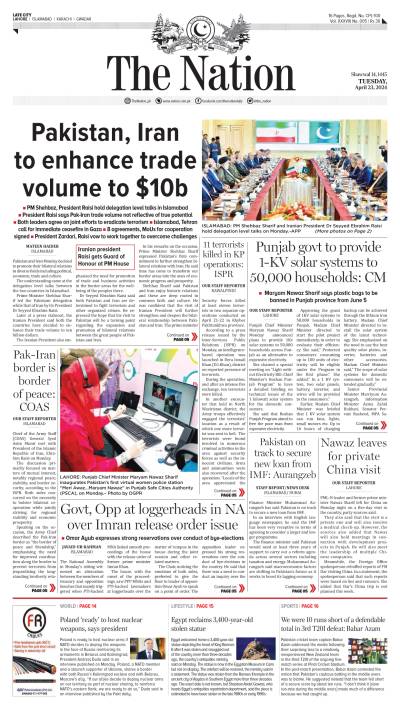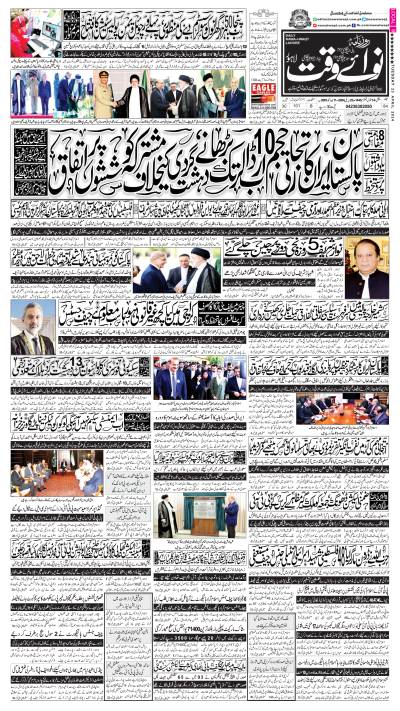LAHORE - With the only exception of Jamat-e-Islami (JI), there is hardly any political party in Pakistan that has not undergone the process of fragmentation.
It may be an internal diffusion of power away from the party leadership to individual party members or in the form of breaking away of a bunch of party office bearers to form a separate faction of the same party.
With the most recent case of Awami National Party’s split into two factions, Pakistan has a long list of the parties having splinter groups with different nomenclatures. Begum Nasim Wali Khan on Wednesday announced her own party, ANP (Wali), after several years of uneasy relationship with the party led by Asfandyar.
The Functional League, led by Pir Sadruddin Rashdi, is also facing a similar situation now. It lost its General Secretary Imtiaz Sheikh who resigned yesterday in protest against his leadership’s planned move to join the PPP government in Sindh. It has already lost its Punjab President Makhdoom Ahmad Mehmood who joined the PPP last year. Former Punjab Governor Malik Ghulam Mustafa Khar is now leading its Punjab chapter.
Of late, we also saw disintegration of JUP (Noorani) splitting into two groups led by Sahibzada Abul Khair and Qari Zawar Bahadur.
It all started with Pakistan Muslim League, the party which led the Muslims of the subcontinent to win a separate homeland. Successive dictators from Ayub Khan to Pervez Musharraf created factions in the PML to give a political colouring to their illegitimate rule. Over a period of time, it came to be known as Convention League, Zia League, N-League, Q-League, Junejo League, Functional League and Momin League.
The PPP, the biggest political party, having roots in the four provinces, also underwent this process. It had its factions with the name of PPP-Shaheed Bhutto, led by Ghinwa Bhutto, PPP-Shairpao, led by Aftab Shairpao, and Mohtarma Shaheed Workers Federation, led by Naheed Khan.
Among the religio-political parties, Jamiat-e-Ulema Pakistan (JUP) was divided into Noorani and Niazi groups. Similarly, another faction was also created in JUP Niazi by Sahibzada Fazal Karim.
The same is the case with Jamiat Ulema-e-Islam. It is divided into JUI-F, JUI-S and JUI Nazriati groups.
A faction was also created in MQM with the nomenclature of MQM Haqeeqi. The two factions remained at odds for long time, also involving killing of each other’s workers.
Political analysts believe the only way to stop formation of splinter groups in political parties is to hold intra-party elections. If the leadership does not come through election from within the party, the second-tier leadership becomes desperate finding no chance of joining the main leadership which is unelected, they say.
Though the political parties hold sham intra-party elections only to fulfil a legal requirement, the office bearers don’t really get a chance to elect the leaders of their choice.
Jamaat-e-Islami, however, is the only party in Pakistan, which never got divided into factions. The reason being that there exists within it a transparent system of intra-party polls providing a fair chance to all office bearers to capture the top most positions. Nobody has ever questioned the authenticity of these elections which are held regularly according to a pre-determined schedule.
Even in a party with visible signs of fragmentation, the party leadership lacks the authority to provide the kind of leadership it should have in a coherent party. Party leaders’ failure to have full command over the ranks and file also renders them helpless to run the political institutions effectively.
Tuesday, April 23, 2024
Intra-party polls have the remedy
Fragmentation of political parties

Caption: Intra-party polls have the remedy
PM takes notice of deliberate delay in tax cases
12:14 PM | April 23, 2024
Knowledge without ethics has no value, says Iran president's wife Dr Jamileh
11:24 AM | April 23, 2024
ICT admin arrests over 900 alms-seekers
April 23, 2024
Attock observes Earth Day with tree plantation drive
April 23, 2024
Iranian President Ebrahim Raisi lands in Lahore, visits Mazar-e-Iqbal
10:49 AM | April 23, 2024
More Rifts in PTI
April 21, 2024
Smuggling Collusion
April 21, 2024
Old Carrots, New Sticks
April 21, 2024
Policitising Tragedy
April 20, 2024
Tehran to Rafah
April 20, 2024
Space print revolution
April 23, 2024
Digital grievance
April 23, 2024
Wonders of VR
April 22, 2024
Toxoplasmosis in big cats
April 22, 2024
Social welfare
April 21, 2024
ePaper - Nawaiwaqt
Advertisement
Nawaiwaqt Group | Copyright © 2024





